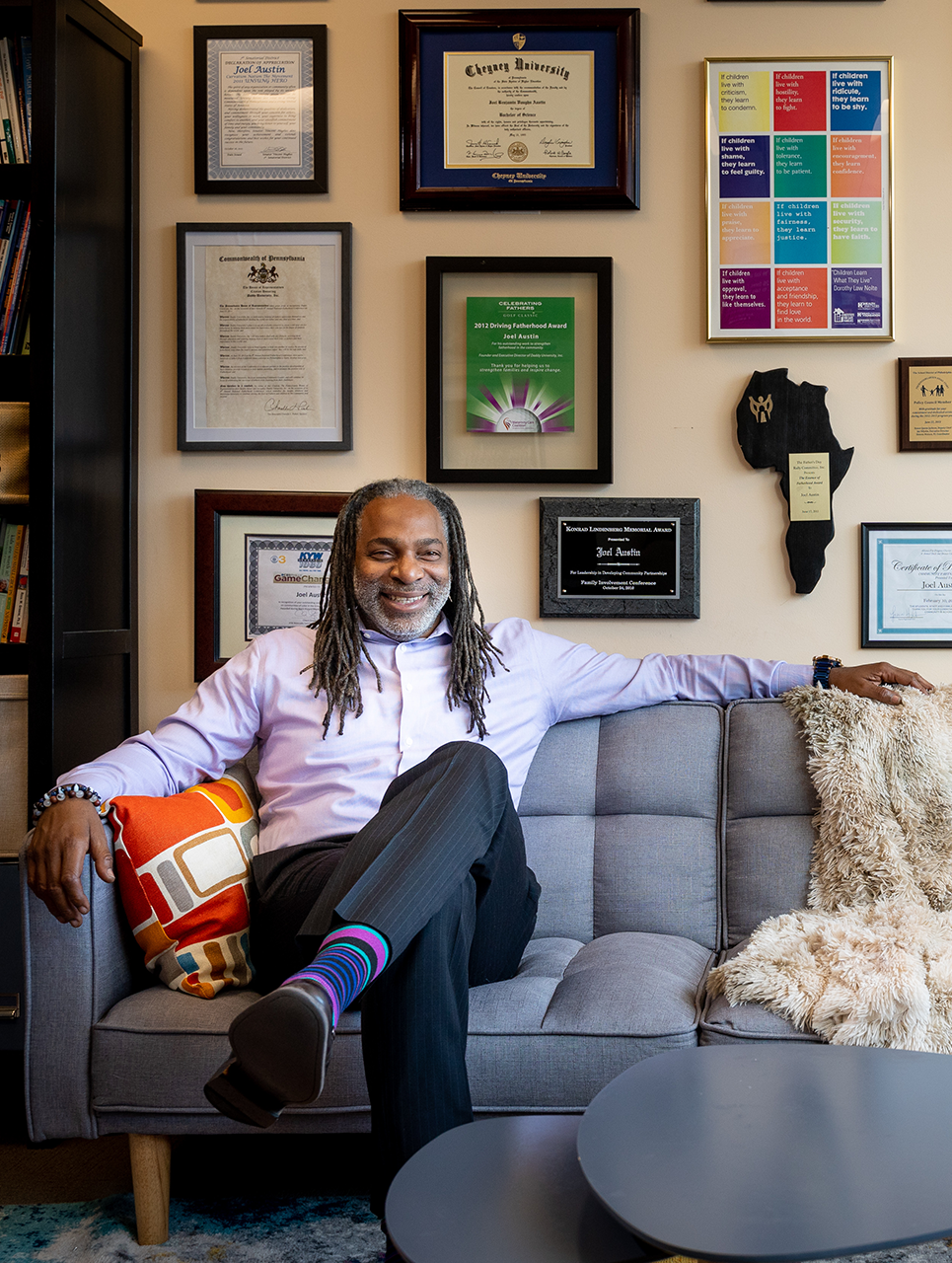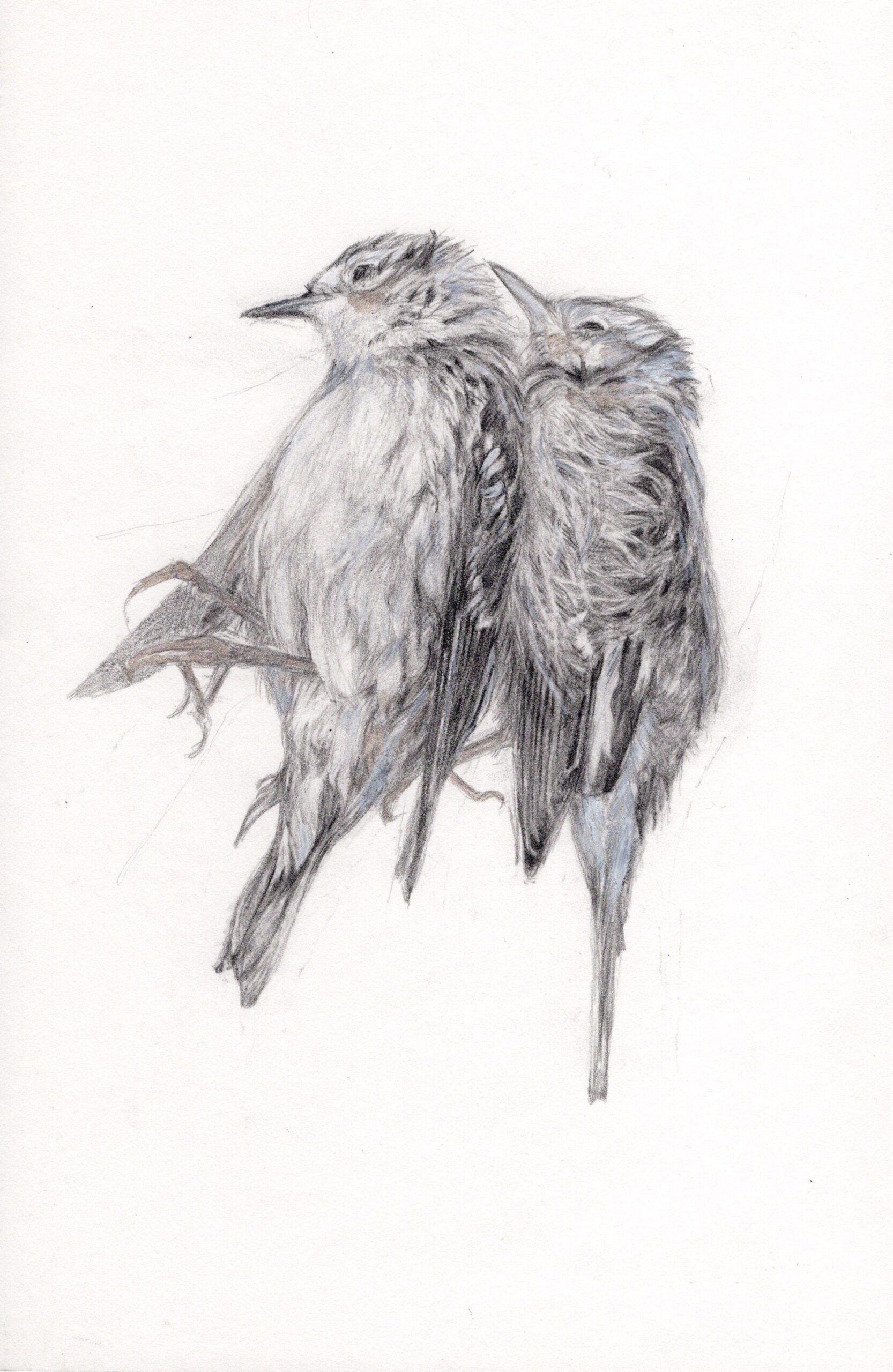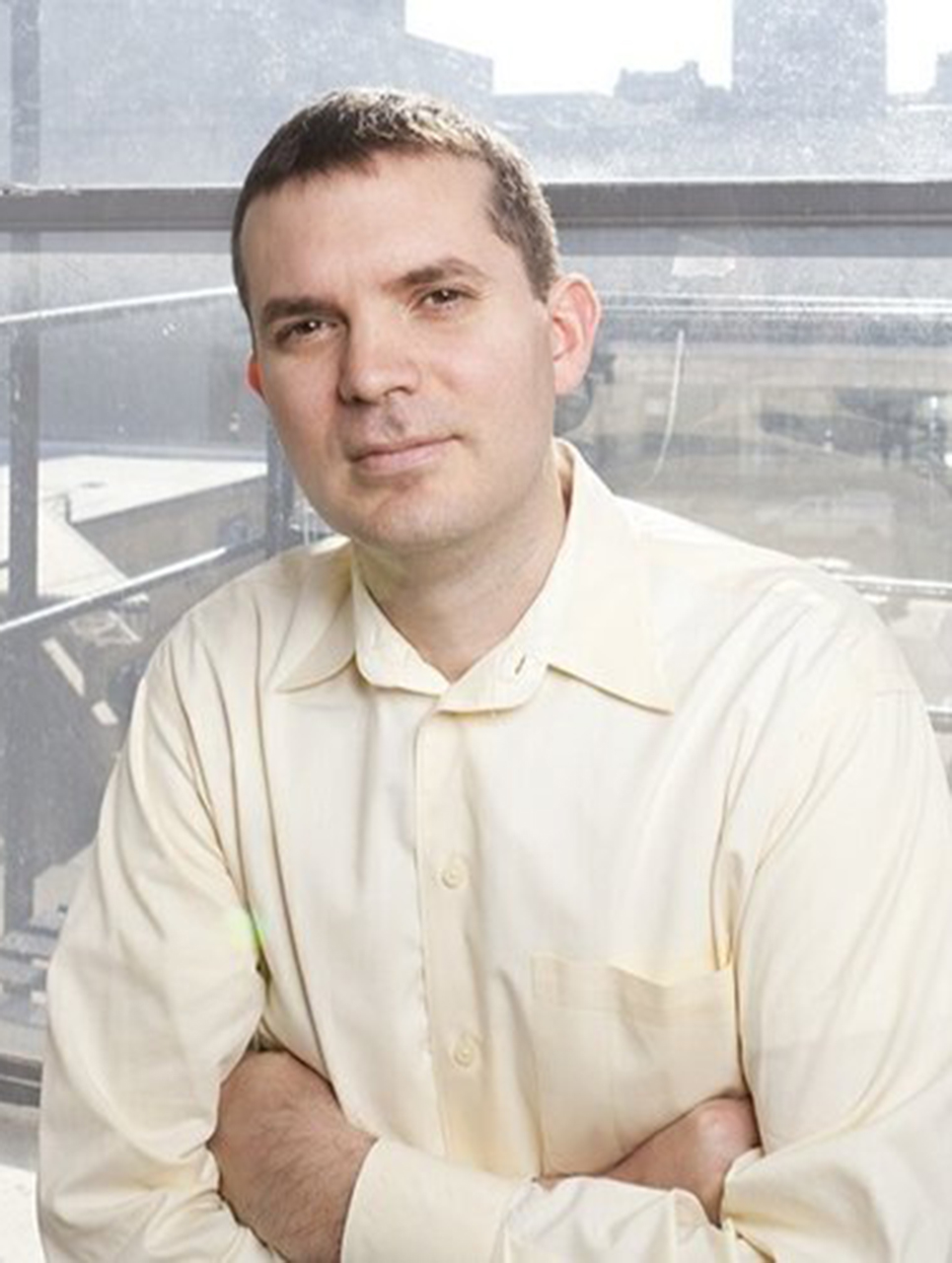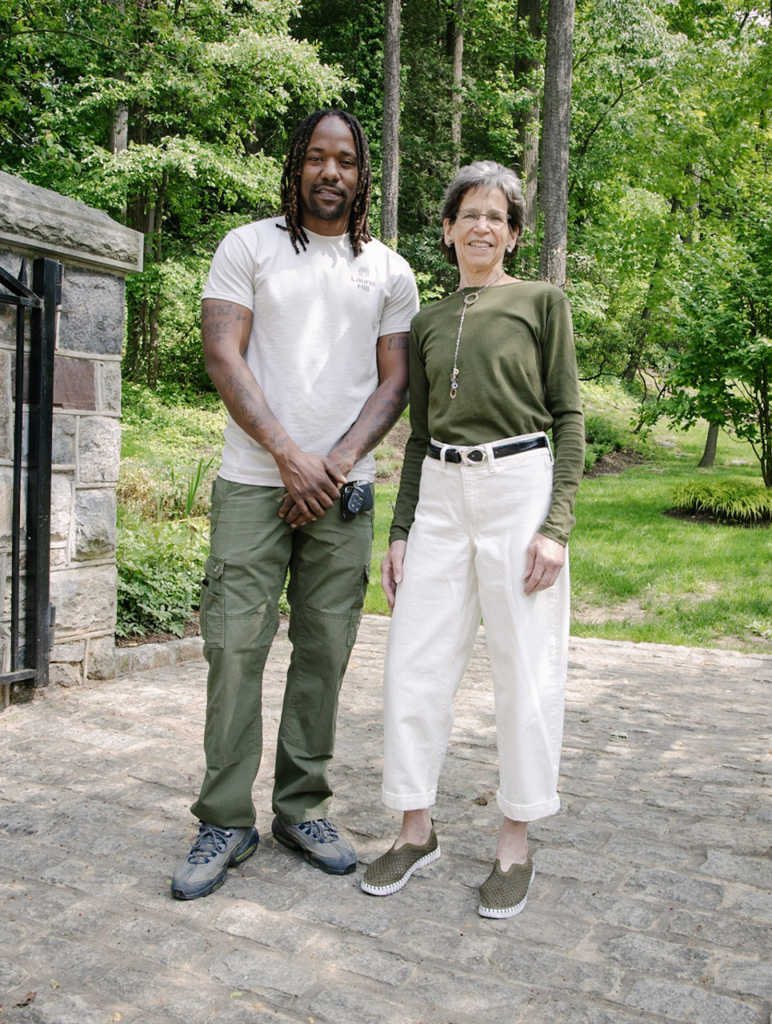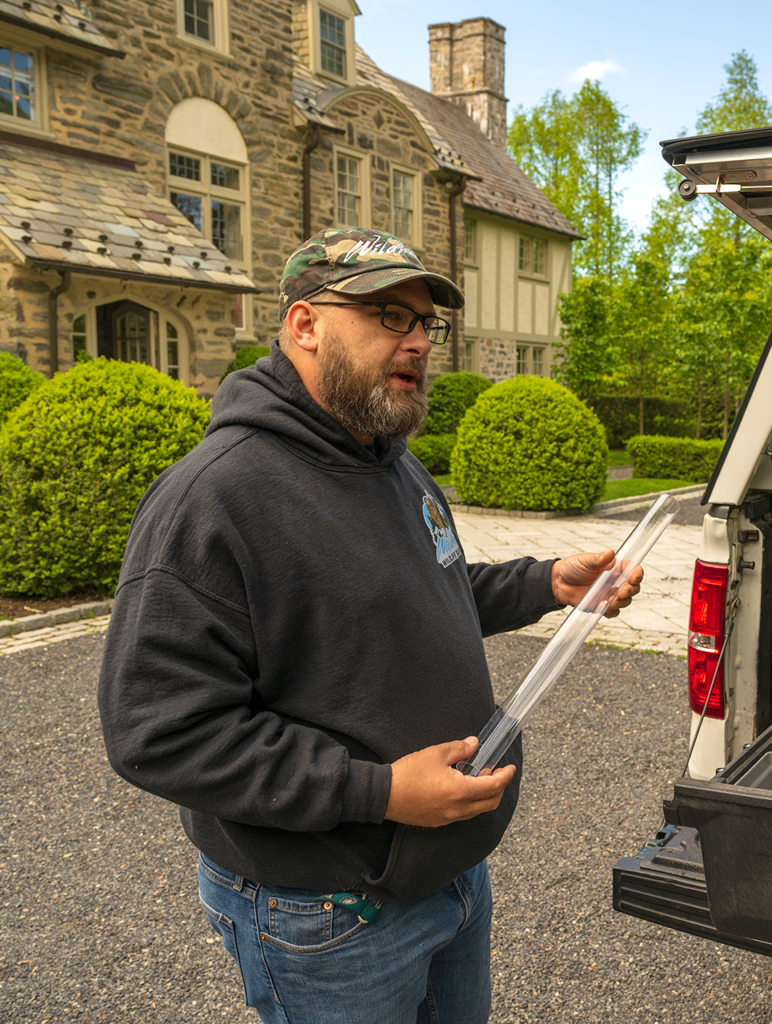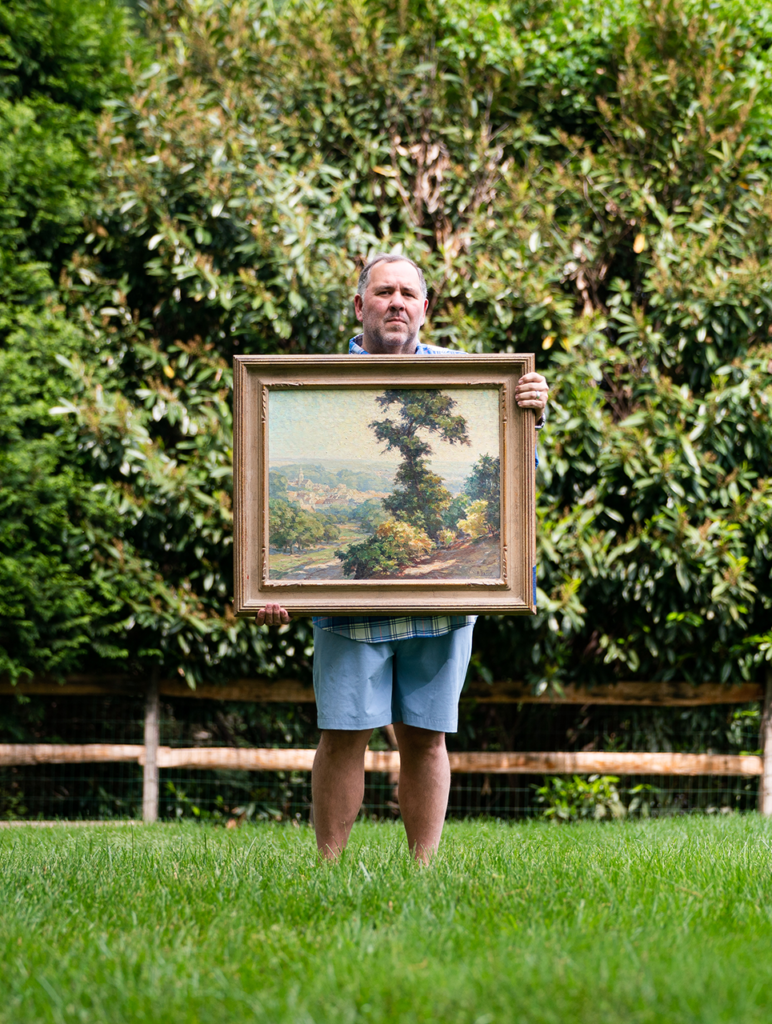I was a student at King [High School] when I heard about the Men [Who Care of Germantown (MWCOG)],” says Jewel Gadson, 19. “I was a hothead. Sometimes I didn’t go to class,” says Gadson, the third oldest of 15 siblings. Gadson, like his brothers and sisters, was in and out of foster care from an early age. When he was in middle school, his mother and father lost all parental rights. “At the weekly meetings, [the Men] talked about gun violence, about getting more education, taking pride in ourselves.”
After graduation, Gadson, who has worked in summer camps, stores, a restaurant and other jobs, continued to be mentored by MWCOG, a Northwest Philly nonprofit. “I’m currently getting ready to go to college, to Morgan State [University] for nursing,” he says.
While MWCOG provides mentoring and 10 to 15 $500 college scholarships per year, another Black men’s group will soon hit the streets to help protect young people. In the wake of the March 28 gunning down of 15-year-old Devin Weedon, a “rising star” at Nicetown’s Simon Gratz High School, the Black Male Community Council of Philadelphia (BMCCPhilly) has developed a strategy to help safeguard Weedon’s fellow students.
“We have a security plan to help protect women, children and elders at key places in Nicetown, including Gratz, the Steele [Elementary] School, and the Germantown and Windrim Transportation corridor,” says Stanley Crawford, founder and executive director of BMCCPhilly. “Having a Black male presence can help deter violence.”
Black males are trying to do right by their children.”
— Bilal Qayyum, president of the Father’s Day Rally Committee
The media often portray Black men as absent from the lives of Black boys, but Crawford and other local African heritage men beg to differ.
“Black males are trying to do right by their children,” says Bilal Qayyum, president of the Father’s Day Rally Committee, which he founded in Philly in 1990. “We help African American males faced with the social, economic, educational and relationship challenges [of parenting]. We get fathers involved in the lives of their children.”
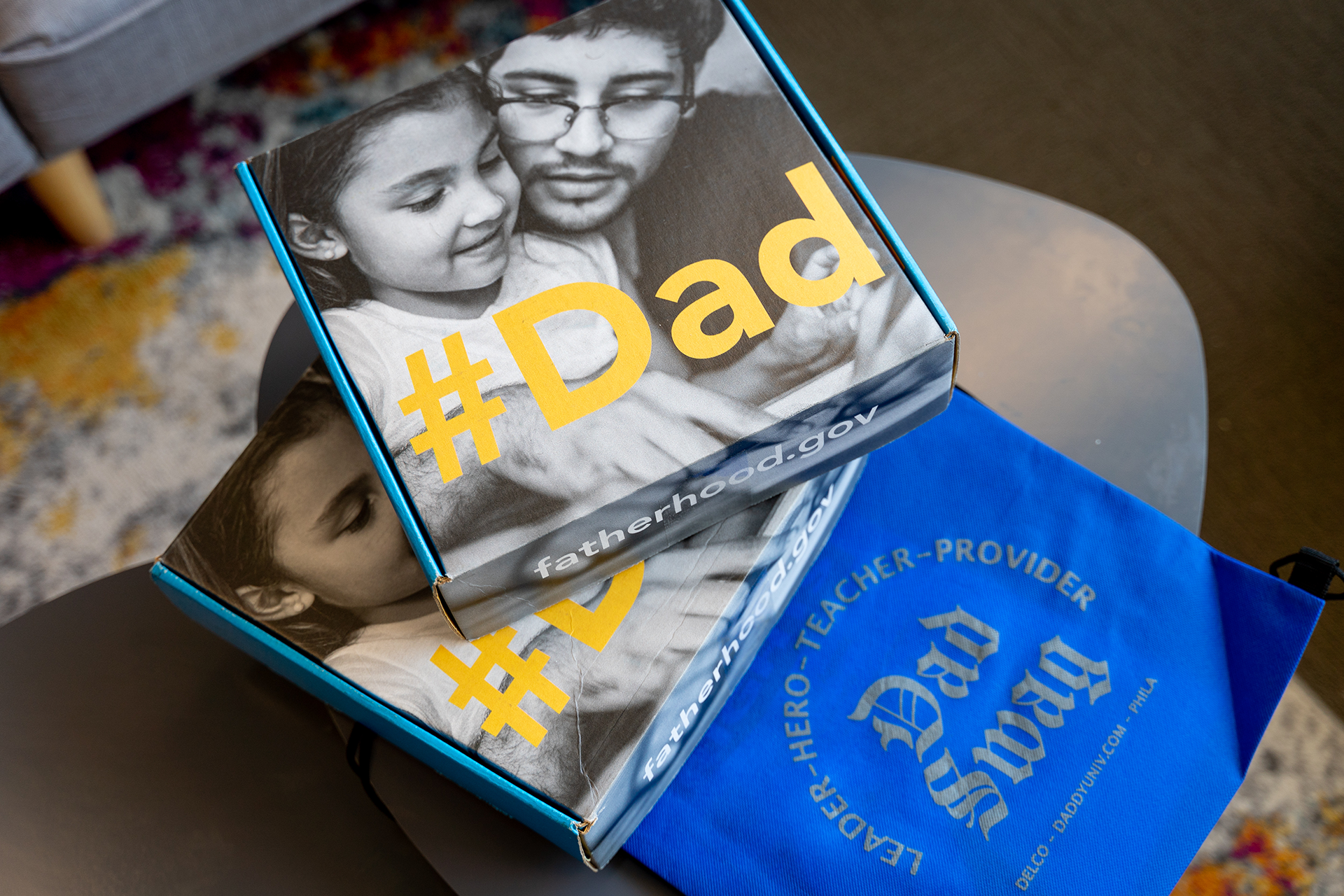
The stereotype of disappearing Black fathers seems to have staying power, but one study takes a more nuanced look at Black dads.
“While Black fathers are less likely than white and Hispanic fathers to marry their child’s mother, many Black fathers continue to parent through cohabitation and visitation, providing caretaking, financial and in-kind support,” according to “The Myth of the Missing Black father,” published by the National Responsible Fatherhood Clearinghouse, a U.S. government agency, in 2009.
The presence of African heritage men in the lives of their sons and other Black boys helps give these children a fighting chance. African American boys face crippling rates of poverty, with a third of them living in that condition, says “Brotherly Love: Health of Black Men and Boys in Philadelphia,” a 2019 report by the Candid Foundation of New York City. In addition, Black youths are 83% more likely than white youths to become homeless, says a 2019 estimate from the Homeless Youth Connection in Phoenix, Arizona. Regarding education, the Schott Foundation found in a 2015 study that “national public high school graduation rates are 59% for Black male students, 65% for Latino males, and 80% for White, non-Latino males.” As for emotional wellbeing, “the suicide risk among Black boys between the ages of five and eleven was two to three times higher than that of white boys,” according to a 2018 study published in the Journal of the American Medical Association.
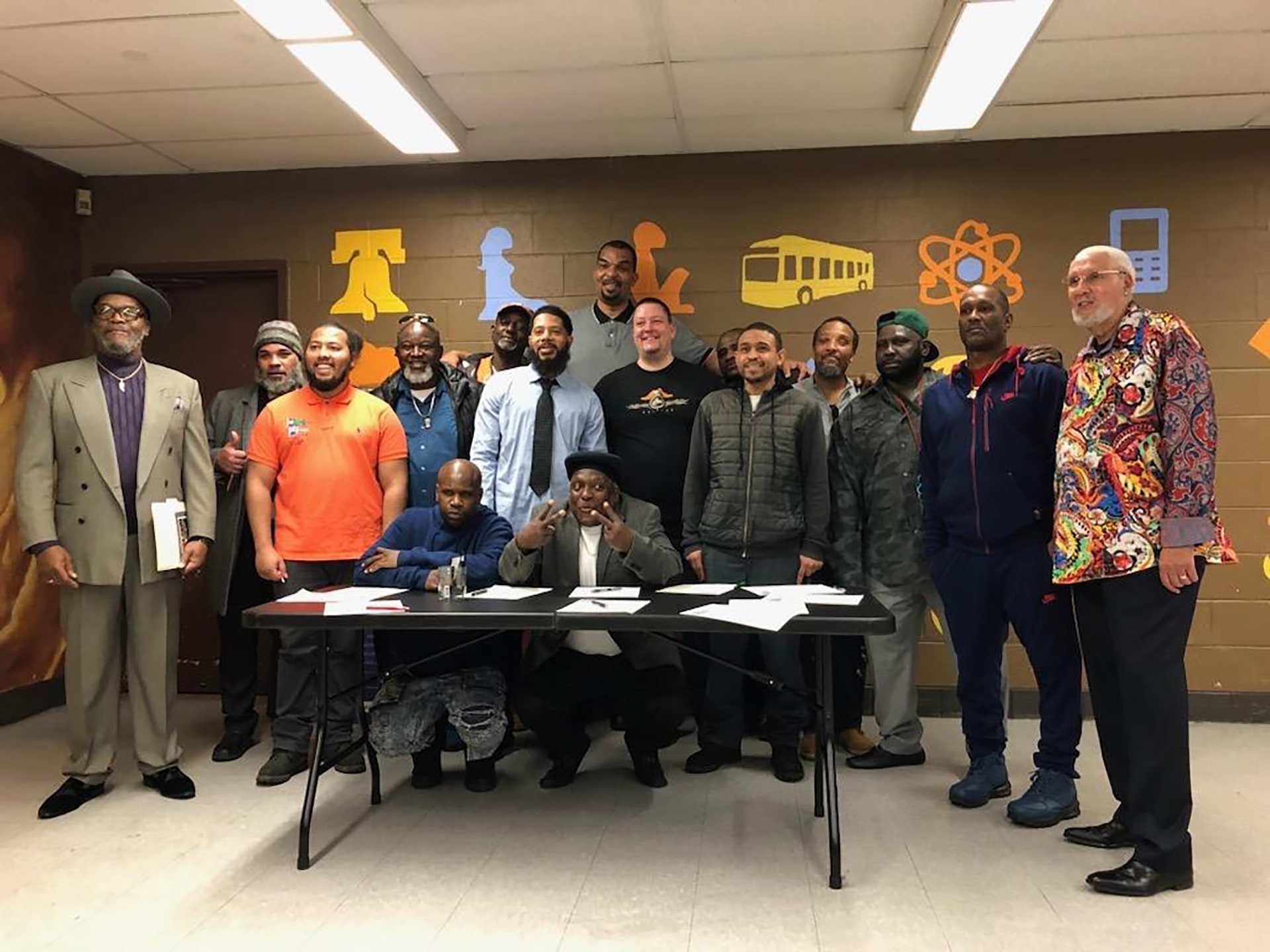
Some Black men in Philly have stepped up to the challenge of those steep odds. From starting a school for fathers to guarding street corners, African American men have been moved to act for the love of Black boys. Their collective work covers boys from birth through young adulthood.
In 2004, Joel Austin, a Black father, launched Daddy University, Inc., whose workshops show fathers, most of them men of color, how to parent children from infancy to adulthood.
“It’s the oldest male parenting education company in the U.S.,” says Austin, president and CEO of the Center City firm. “We educate fathers by providing information, services, advocacy, products and training. We get married dads, single dads, divorced dads and stay-at-home dads. We have classes online that cover topics like child development but also custody and support to help ensure that fathers have a role in their children’s lives.”
The curriculum follows a child’s growth. Freshmen classes focus on children from birth to age 5, explains Austin, a doula or person trained to offer emotional and physical support during birth and the days immediately following it. Daddy University emphasizes the practical with choices like cooking classes for dads.
“We provide information that helps fathers cope with and understand almost any parenting situation,” Austin says.
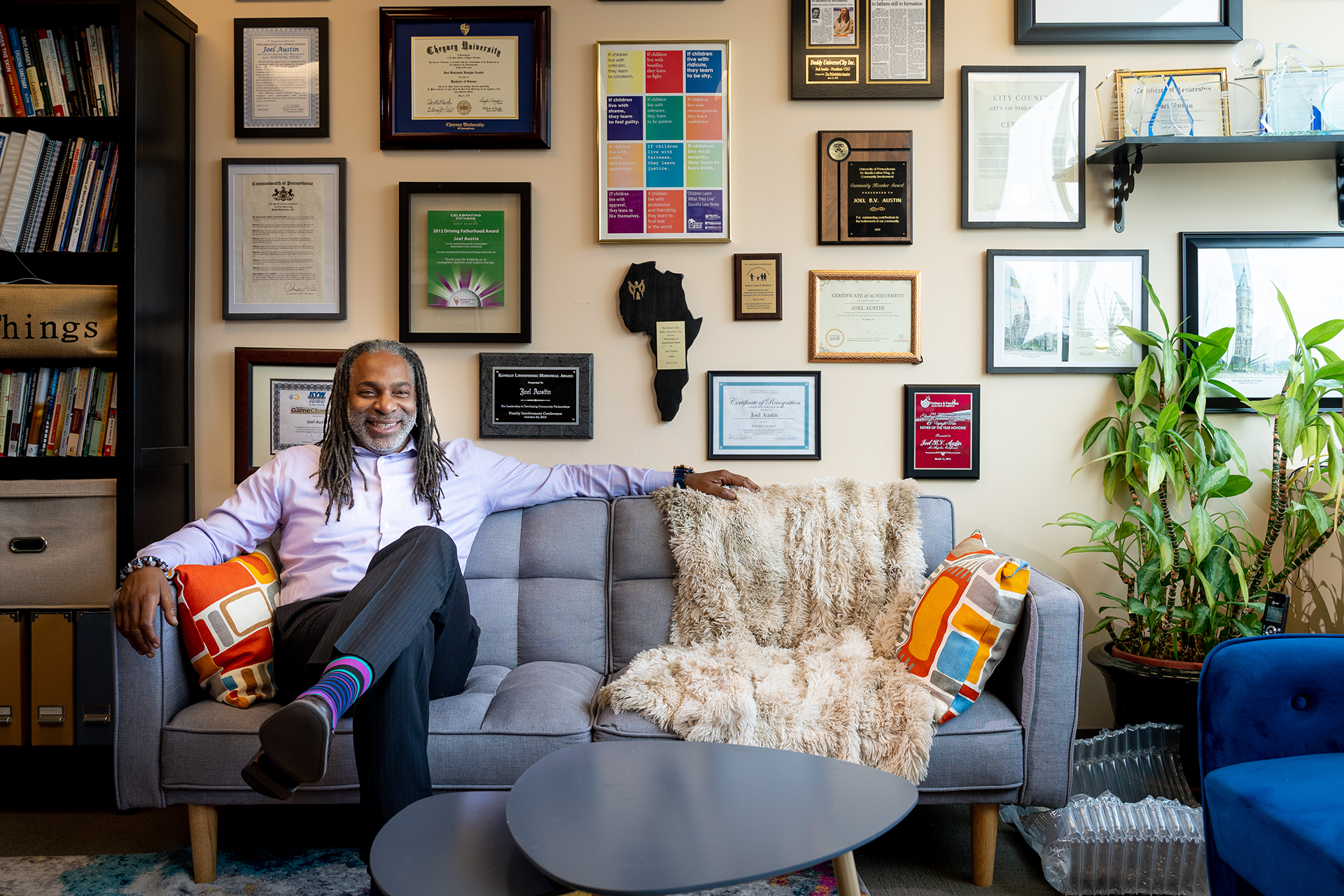
While Austin focuses on fathers, Barbershop Books uses Black barbershops, a neighborhood oasis for African American men, to encourage boys to become good readers.
“We’re raising up a new narrative, a different view of Black boys,” says Alvin Irby, who has a master’s degree in education as well as one in public health. “I was teaching first grade in the Bronx when I went into a barbershop and saw a little boy, one of my students, restless, waiting to have his hair cut. I thought, ‘That boy should be practicing his reading.’ Today, more than 82% of Black male 4th grade students in the U.S. are not proficient in reading,” Irby says. “Low reading achievement among Black boys today will produce Black men ill-prepared to compete in the workforce of tomorrow.”
Irby asked the barber if he could bring in a stack of books for boys. With the barber’s consent, Irby put the books on a shelf where boys could reach them. Thus, Barbershop Books, a national literacy nonprofit, began. The current 203 participating barbershops nationwide include four in West Philly and 30 in North Philly, says spokesperson Sheena Brockington.
“We curate our books,” Irby says. “They’re new — Black boys deserve to read new books — and recommended by the boys themselves. Some of them have Black protagonists, but not necessarily. They reflect the full humanity of Black boys. ‘Captain Underpants’ and ‘Diary of a Wimpy Kid’ are favorites.” Irby adds that he partners with individuals, city governments, school districts and library systems in his work.
“Barbers are encouraged to get involved,” says Irby, also a stand-up comic. “Ideally, we want barbers to initiate the conversation about reading when they have the boy in the chair. You have that Black male reading role model. When the boys read more, they’re going to have a bigger world.”
Grassroots groups like MWCOG mentor Black boys from kindergarten through high school with its programs at Emlen Elementary School, Roosevelt Elementary School, and Martin Luther King High School, all in Northwest Philadelphia.
“We began in 2011, cleaning weeds six feet tall off vacant lots,” says Joe Budd Jr., president and co-founder of MWCOG. “Sometimes drugs were hidden there. Some guys hanging on the corner started helping us. You have to be a member of the community and also be consistent to build trust. Organically, our focus grew to include education. Now organizations who want to make a difference come to us because we’re in schools. If you’re from North Philly and you want to replicate our program there, I’ll train you.”
MWCOG’s services include a free summer day camp and food distribution. The food helps build relationships with families, a key to assisting students, Budd says.
“The narrative has always been that Black parents are not around because they’re not interested, but some have two or three jobs.”
Mentoring stands at the heart of MWCOG’s work.
“We have a program, ‘Real Talk,’ once a week for an hour at each school, where students can talk about what’s on their minds. It gives African American boys a voice in a world that otherwise tries to silence them,” Budd says. The boys can speak in confidence. “We have a resource center. If you’re being teased because your clothes are raggedy, we can help. If you don’t know how to fill out a job application, we can help.”
Above all, “Real Talk” helps address gun violence.
“You’ve got to start talking about gun violence when they’re 10, 11, or younger. ‘Catch ’em before the street catches ’em,’ is how the saying goes. We need more neighborhood pop-pops [grandfathers] out here with us,” says Budd, who relies on partners like Philabundance, Enon Baptist Church and other groups. “It’s frustrating being a Black male and having Black children that could be murdered.”
No one knows better than BMCCPhilly’s Stanley Crawford.” Crawford’s son, William Aboaje Samir, was fatally shot in 2018.
“His murder led me to start BMCCPhilly, to honor his life,” says Crawford, whose group aims to “transform hotspots into peaceful, clean and safe environments.”
“During the pandemic, we were at Richard Allen Homes, distributing food and cleaning up consistently. You have to know how to be amongst [Black youth]. You have to build trust,” says Crawford, a former dancer with the Arthur Hall African Dance Ensemble and a retired commercial and industrial fire inspector for the City of Philadelphia. BMCCPhilly has a victim impact program, a mentoring program and a same-day program where you work and get paid on the same day, Crawford says.
Above all, BMCCPhilly promotes public safety in the Black community.
“I’m not saying our [safety] plan for Nicetown will stop gun violence, but it can be a deterrent.”
Just as neighborhood groups can assist in creating more security and life choices for Black boys, so too can national nonprofits like 100 Black Men of America, Inc. Headquartered in Atlanta, Georgia, this civic organization has more than 100 chapters in cities across the country, including Philadelphia. Founded in 1963, 100 Black Men seeks “to educate and empower Black children and teens,” according to their website. Mentoring, programs and scholarships assist in achieving that goal.
“I’m a life coach,” says David Chaney, one of the group’s mentors. Chaney’s office is in Vaux Big Picture High School, located at 2300 Master Street. “I help young people find internships,” says Chaney, noting that many of the jobs are in construction, thanks to a partnership with Home Builders Institute, which provides training in trade skills.
His background makes him a good mentor, says Chaney, who considers mentoring a lifelong relationship.
I remind [mentees] that it takes strength to say you need help.”
— David Chaney, 100 Black Men
“I grew up at 29th and Oxford and also with my grandparents in Georgia,” Chaney says. “I never met my father. He was murdered. My experience later with my grandfather’s passing allows me to relate to young men [who’ve had losses]. I suffered from depression, from anxiety. I suggest psychological counseling [to mentees] when it seems appropriate. I remind them that it takes strength to say you need help. Black boys and young men want to feel important, to feel that they matter, but so many messages in the media tell them that they don’t.”
100 Black Men’s Leadership Academy, for boys from the second through the 12th grades, focuses on self-awareness, peer mentoring, conflict resolution and other essential skills. It meets on the first and third Saturdays of the month in tandem with the Parent Academy that tackles topics like “How do we support our sons as they come of age?” In addition, the Philly chapter offers Manhood 101 for men ages 18 to 29. A health-and-wellness component, scholarships, a Black history challenge and other programs round out 100 Black Men’s approach.
Black men’s national fraternal organizations like Groove Phi Groove Social Fellowship, Inc., begun at Morgan State University in Baltimore in 1962, also work to guide Black youth. An alternative to traditional fraternities, Groove Phi Groove is “in the business of creating intelligent and effective leaders,” says Khary Atif, the international secretary for the fellowship, which has chapters in Nigeria, the Dominican Republic and other countries. In the Philly chapter, the goal of educating thoughtful men translates into the Leadership Academy, which consists of a series of classes at the Finley Recreation Center, located at 7701 Mansfield Avenue.
“Boys from the ninth through 12th grades take part in our nine-week lecture series,” says Atif, retired after 37 years as a child-abuse investigator in Philly’s Department of Human Services. “We cover topics like personal finance and Black history. The kids also design and carry out a community service project. We take the kids to the theater — the Arden does lots of kids’ programs — and to baseball games and other activities.”
The talks and trips prime youth to join bus tours to historically Black colleges and universities (HBCUs), Atif says.
“It’s not unusual to find kids who haven’t traveled outside of the city,” says Atif, who grew up in West Philly near 60th Street. “We take them to Morgan State, Bowie State, Lincoln, Cheyney and other schools. Some of them didn’t know that such opportunities were available to them. Sometimes it pulls them out of negative activities. We provide scholarships for program participants. We have a 72% graduation rate for kids who take the bus tour,” says Atif, adding that other Black fraternal organizations are doing similar work nationwide.
Groove Phi Groove member Clayton Graves recalls being drawn to the organization about 10 years ago when he was “a reckless young man, 21 or 22 years old, at Cheyney.” A chaplain’s assistant in the Army Reserve, he also works in security at a charter school. “The mentoring I received has shaped my parenting,” says the North Philly native and father of four. “I’m more patient, more aware of the importance of early learning. Mentoring is generational. I still turn to my mentors when I have parenting questions.”
The mentoring Graves gives back seems to have a long reach.
“I do mentorship for the neighborhood,” says Graves, who lives in Mount Airy. “A lot of kids don’t have two parents at home. I guide kids in making choices, I watch them grow. Our group passes on mentoring. It’s what we do.”
These local Black men’s groups build possibilities into the lives of Black boys through being generous with their time, empathy and sometimes money from their own pockets. For young men like Martin Luther King graduate Jewel Gadson, that moral and financial support made the difference.
“We’re paying for him to attend a summer program at Morgan,” says MWCOG’s Budd. “It’s part of the scholarship we’re giving him.”


